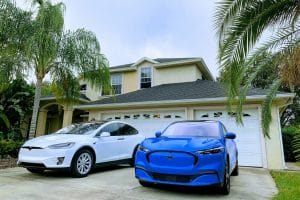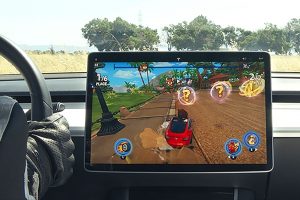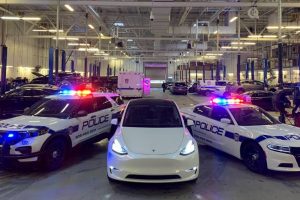- 🚗 Tesla Supercharger access for GM, Polestar, and Volvo has been delayed.
- 🔄 Layoffs in Tesla’s Supercharging team have impacted access timelines.
- 🕒 Access for these brands has been pushed from Spring to Summer.
- 🔌 GM delayed its purchase of the NACS adapter for Tesla Superchargers.
- 👥 Tesla started rehiring Supercharger team members.
- 🗓️ Some companies won’t get access to Tesla Superchargers until 2025.
- 📈 Tesla plans to expand existing Supercharger locations with 100% uptime focus.
Access to Tesla’s powerful Supercharger network has been a significant selling point for electric vehicle (EV) manufacturers adopting the North American Charging Standard (NACS). Recently, however, several major brands like General Motors (GM), Polestar, and Volvo have experienced delays in gaining access to this coveted infrastructure. This post dives into the reasons for these delays, the impact on the affected brands, and the broader implications for the EV market.
Delays in Supercharger Access: An Overview
Tesla’s Supercharger network is unparalleled in its efficiency and widespread availability across North America. Initially, GM, Polestar, and Volvo were set to gain access to Tesla’s Supercharger network in Spring 2024. This plan included opening up 15,000 Supercharger stalls to non-Tesla EVs, greatly enhancing charging options for EV owners across the U.S. and Canada. However, several factors have triggered an unexpected delay.
Factors Behind the Delays
1. Layoffs in Tesla’s Supercharging Team
Earlier this year, Tesla enforced a series of layoffs to help sustain cash flow, which included several members of the Supercharging team. Among those let go were high-level executives, including Rebecca Tinucci, Senior Director of Charging Infrastructure. These layoffs have inadvertently led to delays in the integration process for other EV brands.
2. Shift in Timeline for NACS Adapter
GM, in particular, postponed its anticipated purchase of the NACS adapter, crucial for enabling their EVs to utilize Tesla’s Superchargers. This delay has compounded the access issues, pushing back the timeline further.
Business Response and Strategies
Impact on GM, Polestar, and Volvo
According to recent statements, GM and Polestar confirmed that their timelines for access have been shifted from Spring to Summer 2024. Polestar representatives mentioned their timeline “had been adjusted to later this Summer.” For GM, this delay is also tied to their deferred purchase of the NACS adapter.
Tesla’s Rehiring Efforts
In light of the disruptions, Tesla has started rehiring some of its Supercharger team members. This move is likely aimed at stabilizing the operations and ensuring smoother integration for these new brands in the future.
Broader Implications for the EV Market
Short-Term Impact
- Consumer Confidence: Delays might cause temporary dips in consumer confidence, especially among potential buyers considering Polestar, GM, or Volvo EVs.
- Market Competition: For now, Tesla retains a competitive edge as its existing and new customers continue to benefit from an extensive Supercharger network.
Long-Term Solutions
Tesla’s CEO, Elon Musk, has committed to growing the Supercharger network, albeit at a slower pace. The focus will be on achieving 100% uptime and expanding existing locations. While the delay is a setback, the long-term commitment to the Supercharger network bodes well for the EV market as a whole.
Looking Ahead
2025 and Beyond
Several companies may not gain access to Tesla Superchargers until 2025, reflecting a more extended timeline for broader integration. However, this period could also be an opportunity for these brands to refine their EV offerings and develop more robust internal charging solutions.
Conclusion
The delay in Tesla Supercharger access for GM, Polestar, and Volvo is a complex issue rooted in workforce changes and strategic business decisions. However, with Tesla’s efforts to rehire and focus on network expansion, there is hope that these brands can soon benefit from one of the most efficient charging infrastructures in the world. This development will undoubtedly influence consumer decisions and the competitive landscape of the EV market in the coming years.





